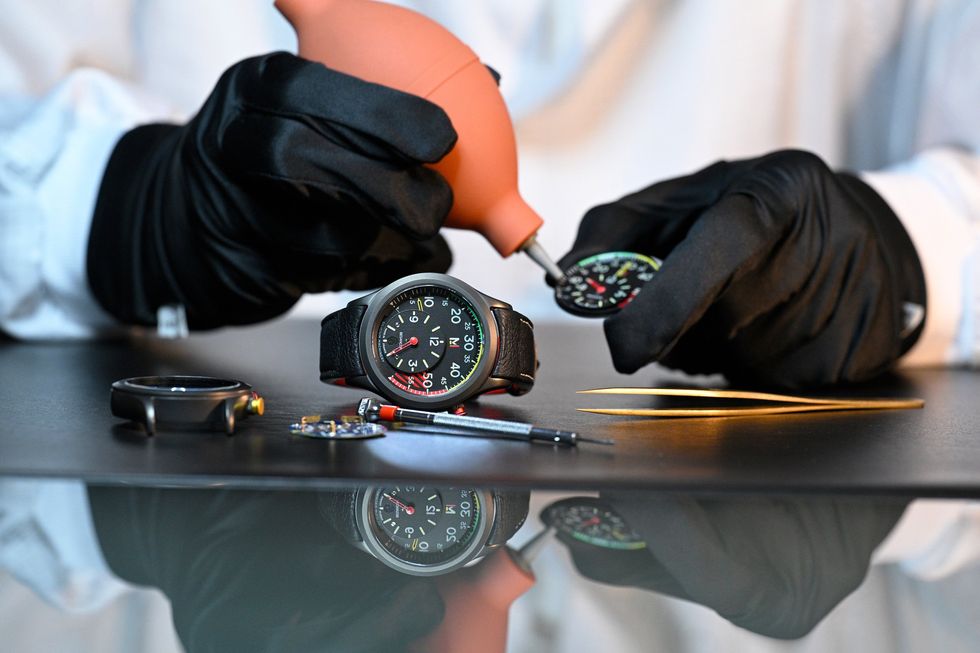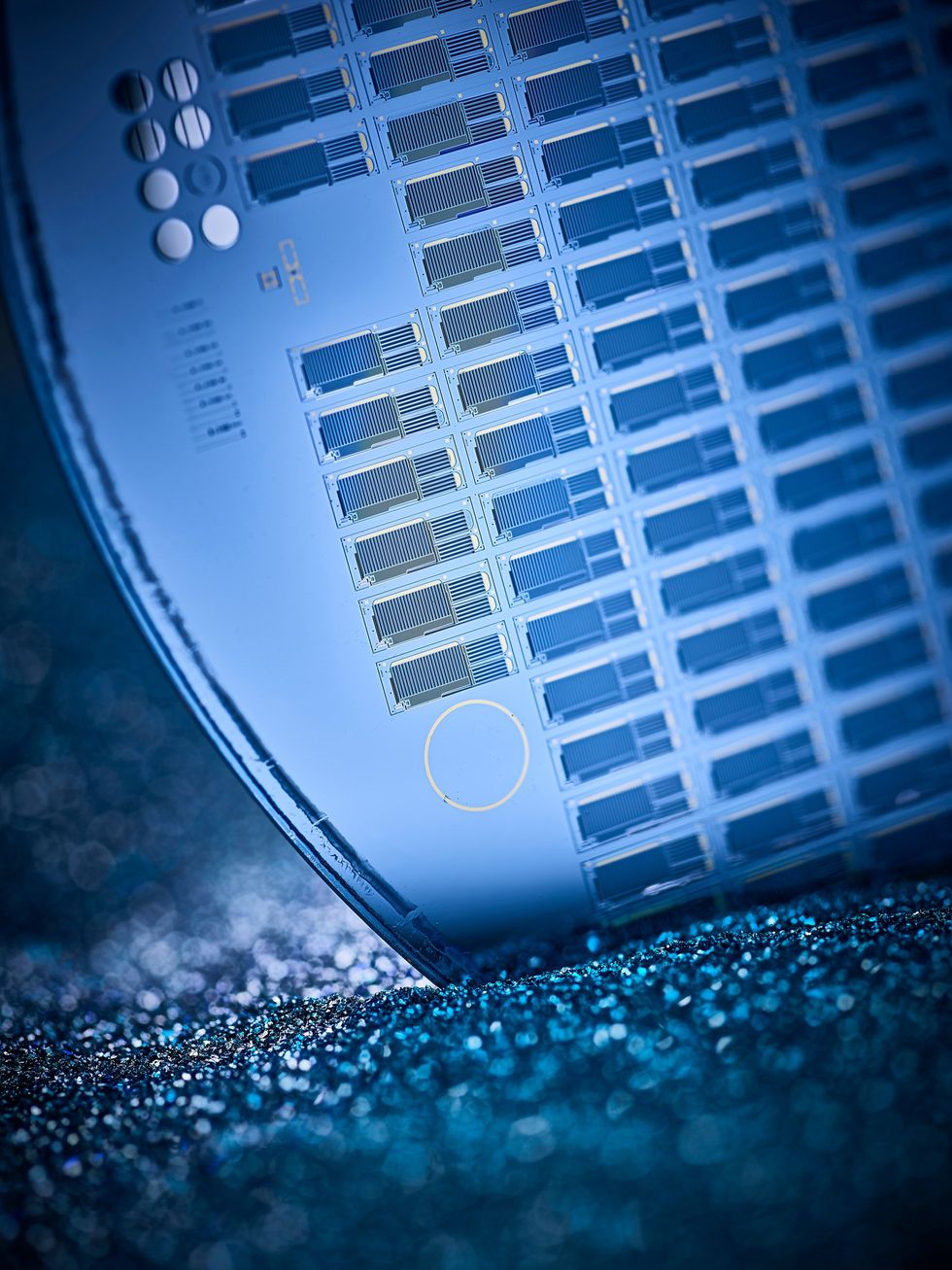Might the analog quartz wristwatch, a mainstay of the timepiece marketplace for greater than half a century, be headed lastly for a high-tech makeover? A French startup, SilMach, in Besançon, France, is betting large that it’s. The corporate has used silicon microelectromechanical techniques (MEMS) to provide a wholly new wristwatch motor for analog watches that’s half the dimensions and roughly 3 times as environment friendly compared with the usual stepper motor now utilized in wristwatches.
Actually? Analog watches? Now? Within the age of the smartwatch?
Time for a actuality test: Quartz analog wristwatches truly accounted for near three-quarters of the marketplace for standard wristwatches lately, based on knowledge compiled by the analysis agency Gitnux. And that total market was valued at US $66 billion this 12 months—barely bigger than the international marketplace for smartwatches, by some estimates.
And but at the moment’s analog quartz watches are technologically unchanged from the first quartz watches, launched 53 years in the past by a Swiss consortium and by Japanese watchmaker Seiko. These watches, and at the moment’s watches, used a form of synchronous direct-current stepper motor referred to as a Lavet motor, invented in 1936 by Marius Lavet, a French engineer.
 A technician assembles a TimeChanger wristwatch, the primary to be outfitted with MEMS motors.SilMach
A technician assembles a TimeChanger wristwatch, the primary to be outfitted with MEMS motors.SilMach
The thought of utilizing silicon MEMS to make a watch motor seized French engineer Patrice Minotti in 1996 whereas he was in Tokyo, heading a joint laboratory between France’s Centre Nationwide de la Recherche Scientifique and the College of Tokyo. “I used to be personally impressed by the very first IC-processed electrostatic motor, which was created a number of years earlier by Richard Muller (UC Berkeley),” Minotti wrote in an e-mail. “This very first IC-based MEMS motor was a tremendous laboratory demonstrator however wasn’t in a position, by far, to drive the fingers of a wristwatch…. I imagined a brand new MEMS motor structure that might be capable to drastically amplify the driving torque of state-of-the-art electrostatic MEMS motors.”
The kind of MEMS actuator the group started working with was the comb drive. To know the way it works, think about two combs with broadly spaced tooth, going through one another with their tooth interleaved. Voltages utilized to every comb arrange an electrostatic attraction, or repulsion, that causes the combs to maneuver towards, or away from, one another. To get rotational movement, levers and crankshafts are linked to the transferring combs.
One large problem was that 2,000 such combs have been wanted to provide sufficient torque to maneuver the fingers of the watch instantly, with none gearing. One other hurdle was the circuitry wanted to get a 3-volt watch battery to provide the 110-V alerts wanted to energy the electrostatic comb drives. Within the present MEMS motor, this conversion is achieved by an application-specific built-in circuit occupying simply 2 millimeters sq.. It took almost a decade to develop, beginning in 2012, based on Pierre-François Louvigné, co-CEO of SilMach.
 A wafer containing drive models for the wristwatch motor was produced at a MEMS fab facility in France. SilMach
A wafer containing drive models for the wristwatch motor was produced at a MEMS fab facility in France. SilMach
In 2016, the corporate entered right into a three way partnership, referred to as TiMach, with Timex Group, the watchmaking big. Timex offered experience wanted to tweak the design of the MEMS motors in order that they might be fabricated in a type readily usable by watch producers. Of their present type, the motors (one for every hand of a watch) and all the opposite elements of a watch might be soldered instantly on to a single surface-mount printed circuit board.
Such compactness and ease of integration is especially advantageous for makers of hybrid smartwatches, comparable to Withings, Garmin, Citizen, Fossil, and Skagen. These watches have lots of the capabilities of smartwatches—pulse and sleep monitoring, health monitoring, Bluetooth communications, message displaying—together with bodily fingers, like a standard analog watch and, after all, a motor. As a result of hybrid timepieces should mix that motor with a wide range of digital sensors and a show, the watches are sometimes fairly giant, and area contained in the case is often very tight.
SilMach is betting on the growth of the marketplace for these hybrid smartwatches, for which their motor could be very effectively suited. “In a typical hybrid smartwatch, the Lavet motor occupies as much as 70 p.c of the within of the case,” says Jean-Baptiste Carnet, SilMach’s different co-CEO. Thus the smaller dimension of the MEMs motors means way more room for different electronics and sensors, he notes. Or, the watches might lastly be made compact sufficient to be worn by individuals with normal-size wrists.
As well as, the truth that the MEMS motors might be built-in instantly with the opposite electronics simplifies manufacturing. “We expect all watches, all wearables, shall be totally digital,” Louvigné declares.
The first watch utilizing the brand new motor was just lately provided as a restricted version on Kickstarter, for €1,850. The corporate can be in discussions with a number of main watchmakers, Louvigné says, including that the corporate would have additional bulletins on the Shopper Electronics Present (CES), in January.
From Your Website Articles
Associated Articles Across the Net